Daily Vocabulary Words: List of Daily Used Words in Leading International Newspapers
Hi there. Welcome to this special section @ Wordpandit.
Our endeavour here is very simple: to highlight important daily vocabulary words, which you would come across in leading newspapers in the country. We have included the following newspapers in our selection:
• The New York Times
• The Washington Post
• Scientific American
• BBC
• The Guardian
• Psychology Today
• Wall Street Journal
• The Economist
We are putting in extensive work for developing your vocabulary. All you have got to do is be regular with this section and check out this post on a daily basis. This is your repository of words that are commonly used and essentially, we are posting a list of daily used words. Hence, this has significant practical application as it teaches you words that are used commonly in leading publications mentioned above.
Visit the website daily to learn words from leading international newspapers.
WORD-1: Convergence
CONTEXT: The convergence of sand and seawater at crucial intersections of the world.
SOURCE: New York Times
EXPLANATORY PARAGRAPH: Convergence is like when different roads come together and meet at one point. It means the act of moving towards and joining at a single point from different places or ideas.
MEANING: The process or state of converging; coming together from different directions to meet (noun)
PRONUNCIATION: kon-vur-jens
SYNONYMS: Meeting, Union, Junction, Intersection, Coalescence, Merging
USAGE EXAMPLES:
1. The convergence of the two rivers creates a beautiful sight.
2. There is a convergence of technology and media.
3. The conference promoted the convergence of different scientific ideas.
4. They noticed a convergence in their research findings.
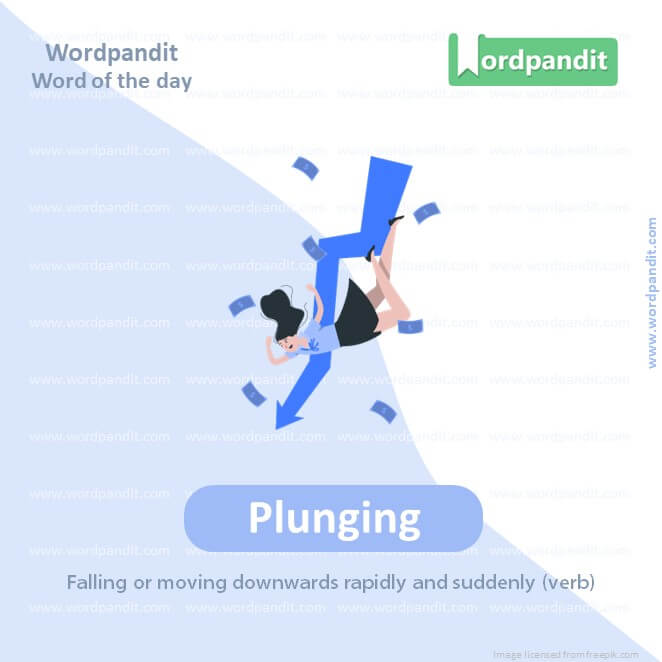
WORD-2: Plunging
CONTEXT: She seemed to see no need to expand on her answer — or to recognize the political mess she was plunging her campaign into.
SOURCE: Washington Post
EXPLANATORY PARAGRAPH: Plunging is like diving quickly into the pool from the edge. It means to fall or move down very quickly and suddenly.
MEANING: Falling or moving downwards rapidly and suddenly (verb)
PRONUNCIATION: pluhn-jing
SYNONYMS: Diving, Dropping, Tumbling, Descending, Sinking, Falling
USAGE EXAMPLES:
1. The bird was plunging towards the water.
2. Stock prices are plunging rapidly.
3. She went plunging down the ski slope.
4. He took a deep breath before plunging into the pool.
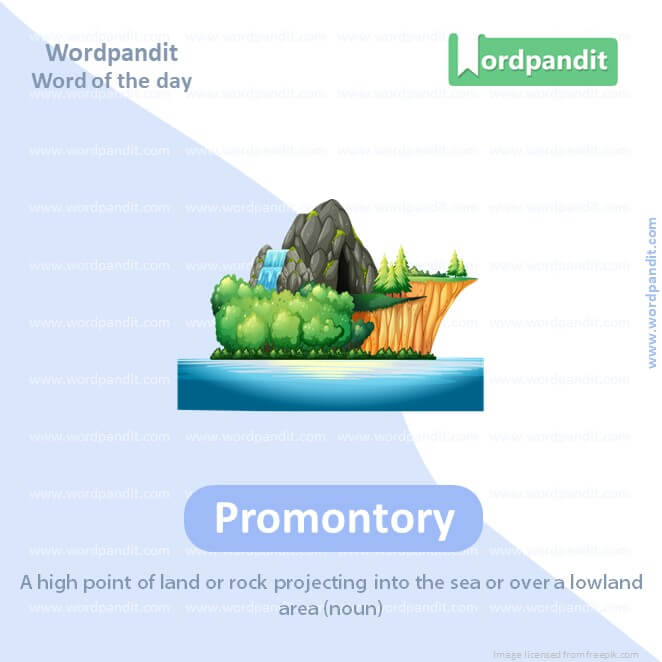
WORD-3: Promontory
CONTEXT: But the fact that Arabs and others keep wanting to live, work, play and start businesses here indicates that the leadership has converted its intensely hot promontory on the Persian Gulf into one of the world’s most prosperous crossroads for trade, tourism, transport, innovation, shipping and golf.
SOURCE: New York Times
EXPLANATORY PARAGRAPH: A promontory is like a big piece of land that sticks out into the sea, kind of like a giant finger pointing out from the beach. It’s a high area of land or rock that goes out into the water.
MEANING: A high point of land or rock projecting into the sea or over a lowland area (noun)
PRONUNCIATION: prom-uhn-tor-ee
SYNONYMS: Headland, Cliff, Cape, Peninsula, Bluff, Ridge
USAGE EXAMPLES:
1. The lighthouse was built on a rocky promontory.
2. They admired the view from the edge of the promontory.
3. Birds nested on the cliffs of the promontory.
4. The promontory offered a strategic viewpoint.
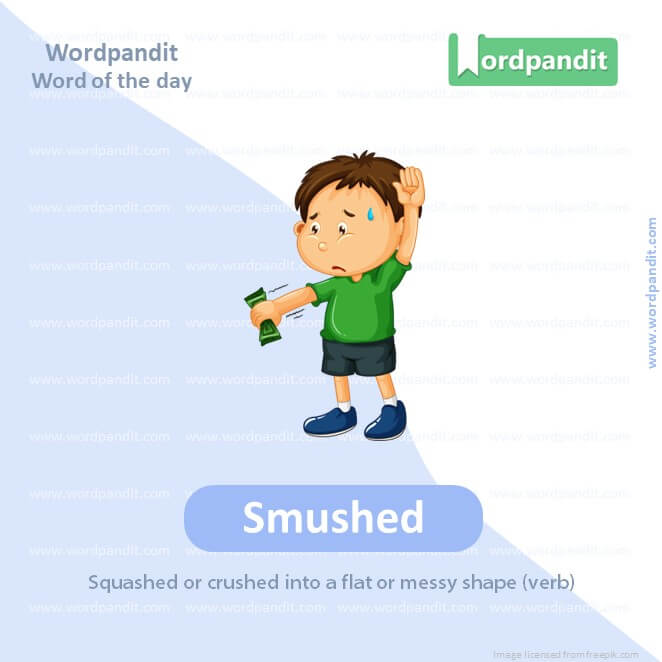
WORD-4: Smushed
CONTEXT: It’s as if someone took Haley’s usual stump speech, printed it onto those little “fridge poetry” magnet words and smushed them around on the refrigerator door.
SOURCE: Washington Post
EXPLANATORY PARAGRAPH: Smushed is like when you accidentally sit on your sandwich, and it gets all flat and squished. It means to squash or crush something, making it flat or messy.
MEANING: Squashed or crushed into a flat or messy shape (verb)
PRONUNCIATION: smooshed
SYNONYMS: Squashed, Crushed, Flattened, Mashed, Compressed, Squished
USAGE EXAMPLES:
1. The cake got smushed in the box.
2. He accidentally smushed the bug.
3. Her nose was smushed against the window.
4. They smushed the clay into different shapes.
WORD-5: Brimming
CONTEXT: It has been such a special political year, brimming with extraordinary, even historic moments.
SOURCE: New York Times
EXPLANATORY PARAGRAPH: Brimming is like when you fill a cup with water all the way to the top so it’s almost overflowing. It means filled to the point of overflowing or full of something.
MEANING: Filled to the point of overflowing; full of a particular quality or feeling (adjective)
PRONUNCIATION: brim-ing
SYNONYMS: Overflowing, Full, Teeming, Abundant, Laden, Saturated
USAGE EXAMPLES:
1. Her eyes were brimming with tears.
2. The basket was brimming with fresh fruit.
3. The room was brimming with excitement.
4. He had a heart brimming with kindness.
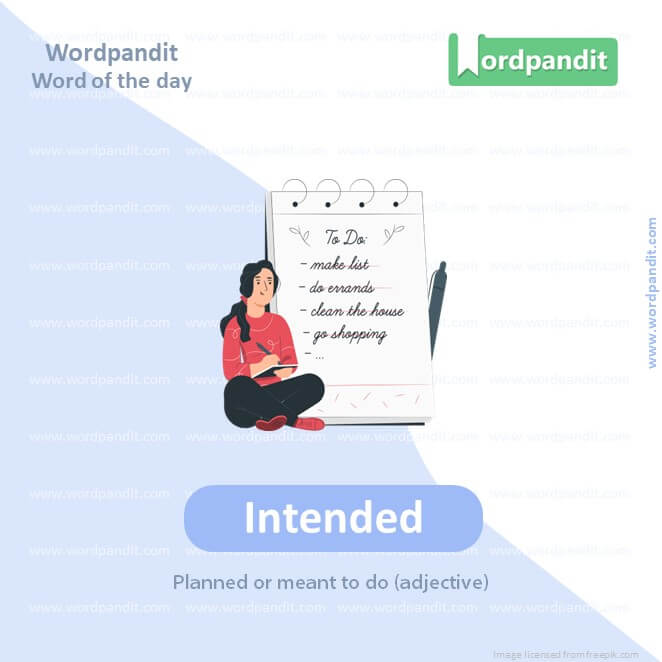
WORD-6: Intended
CONTEXT: I will always stand by the fact that I think government was intended to secure the rights and freedoms of the people.
SOURCE: Washington Post
EXPLANATORY PARAGRAPH: Intended is like when you plan to give your friend a special drawing you made. It means something that you planned or meant to do.
MEANING: Planned or meant to do (adjective)
PRONUNCIATION: in-ten-ded
SYNONYMS: Planned, Meant, Purposed, Designed, Aimed, Destined
USAGE EXAMPLES:
1. The gift was intended for her.
2. The message was not intended to offend.
3. He intended to finish the project on time.
4. The park was intended for public use.
WORD-7: Visionary
CONTEXT: its population of more than 3.5 million has surged since the outbreak of Covid. Why? The short answer is visionary leadership.
SOURCE: New York Times
EXPLANATORY PARAGRAPH: A visionary is like someone who can imagine a whole new world or really cool inventions that no one has ever seen before. It means a person who has creative ideas about the future.
MEANING: A person with original ideas about what the future will or could be like (noun)
PRONUNCIATION: vizh-uh-ner-ee
SYNONYMS: Innovator, Thinker, Dreamer, Prophet, Futurist, Idealist
USAGE EXAMPLES:
1. He was considered a visionary in his field.
2. Her visionary ideas changed the industry.
3. The company was founded by a true visionary.
4. She was known for her visionary leadership.
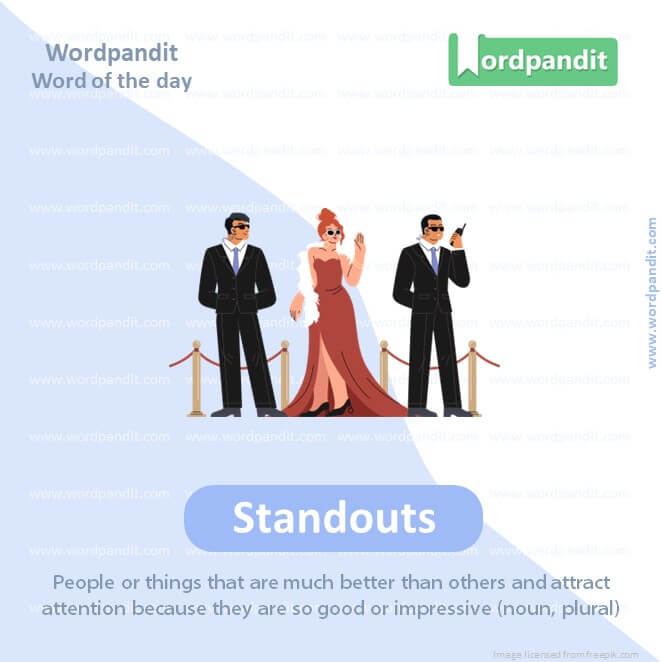
WORD-8: Standouts
CONTEXT: when Marjorie Taylor Greene doesn’t even merit a mention …. But making hard calls is part of my job, and the true standouts deserve a shout-out.
SOURCE: New York Times
EXPLANATORY PARAGRAPH: Standouts are like the tallest sunflower in the garden that you notice right away. It means people or things that are very noticeable because they are better or more impressive than others.
MEANING: People or things that are much better than others and attract attention because they are so good or impressive (noun, plural)
PRONUNCIATION: stand-outs
SYNONYMS: Stars, Highlights, Notables, Attractions, Remarkables, Excellents
USAGE EXAMPLES:
1. She was one of the standouts in the competition.
2. The new model is a standout in the car show.
3. Among the entries, a few standouts were noted by the judges.
4. His performance was a standout of the evening.
WORD-9: Extremist
CONTEXT: Their formula incorporates a radical openness to the world, an emphasis on free markets and education, a ban on extremist political Islam, relatively little corruption, a strong rule of law promulgated from the top down and a relentless commitment to economic diversification, talent recruitment and development.
SOURCE: New York Times
EXPLANATORY PARAGRAPH: An extremist is like someone who only likes strawberry ice cream and thinks all other flavors should not exist. It means a person who has very strong and unreasonable beliefs or opinions about something, especially politics or religion.
MEANING: A person who holds extreme or fanatical political or religious views, especially one who resorts to or advocates extreme action (noun)
PRONUNCIATION: ik-stree-mist
SYNONYMS: Radical, Fanatic, Zealot, Militant, Hard-liner, Ultra
USAGE EXAMPLES:
1. The group was labeled as extremists.
2. He was known for his extremist views.
3. The government took action against extremist organizations.
4. She warned against the dangers of extremist ideologies.
WORD-10: Pluralistic
CONTEXT: In general and the emirate of Dubai in particular could choose to be Arab, modern, pluralistic, globalized and embracing of a moderate interpretation of Islam.
SOURCE: New York Times
EXPLANATORY PARAGRAPH: Pluralistic is like having a box of crayons with lots of different colors. It means a situation or system that includes and accepts many different groups, ideas, or individuals.
MEANING: Relating to or advocating a system that recognizes and respects the existence of different cultures, opinions, or systems within a society (adjective)
PRONUNCIATION: ploo-ruh-lis-tik
SYNONYMS: Diverse, Multicultural, Inclusive, Varied, Tolerant, Comprehensive
USAGE EXAMPLES:
1. We live in an increasingly pluralistic society.
2. The school promotes a pluralistic approach to learning.
3. Their pluralistic values were evident in their policies.
4. The festival was a celebration of pluralistic culture.
Vocabulary new Words
In the exuberant realm of language learning, nothing holds more thrill than the discovery of ‘vocabulary new words’. These gems of knowledge bring with them a fresh perspective and a deeper understanding of language. However, learning ‘vocabulary new words’ requires a methodical and focused approach.
The act of learning ‘vocabulary new words’ is a delve into linguistic novelty, often involving exposure to unfamiliar structures and meanings. Transcending the traditional approach of mere memorization helps in truly cementing newly learnt words into long-term memory. Interaction with a broad spectrum of written and spoken material, including novels, films, podcasts, and digital resources, provides a rich context of ‘vocabulary new words’ and significantly aids in their comprehension.
It’s noteworthy that unpacking ‘vocabulary new words’ is a steady process rather than a rushed one. A planned approach with a specific number of words, learned and reviewed each day, proves beneficial in effective learning. Coupling this method with technologies such as flashcards or memory-enhancement software can optimize the retention of ‘vocabulary new words’.
Integrating mnemonic devices and visual imagery is another highly efficient tool when learning ‘vocabulary new words’. Assigning unique stories or visuals to new words can enhance recall, making unfamiliar vocabulary much more approachable.
Lastly, practicing ‘vocabulary new words’ within daily routine is crucial for grasping their usage. Whether it’s through active utilization in conversation or incorporating these words in written communicative situations, application reinforces understanding.
In summation, mastering ‘vocabulary new words’ is an enriching pursuit that expands our linguistic horizons. However, a balanced approach, combining diverse reading materials, pacing your learning, employing memory-boosting strategies, and daily practice greatly streamlines the task. Embark on this fascinating journey, and let the ‘vocabulary new words’ fill your linguistic canvas with a fresh palette of expressions.











